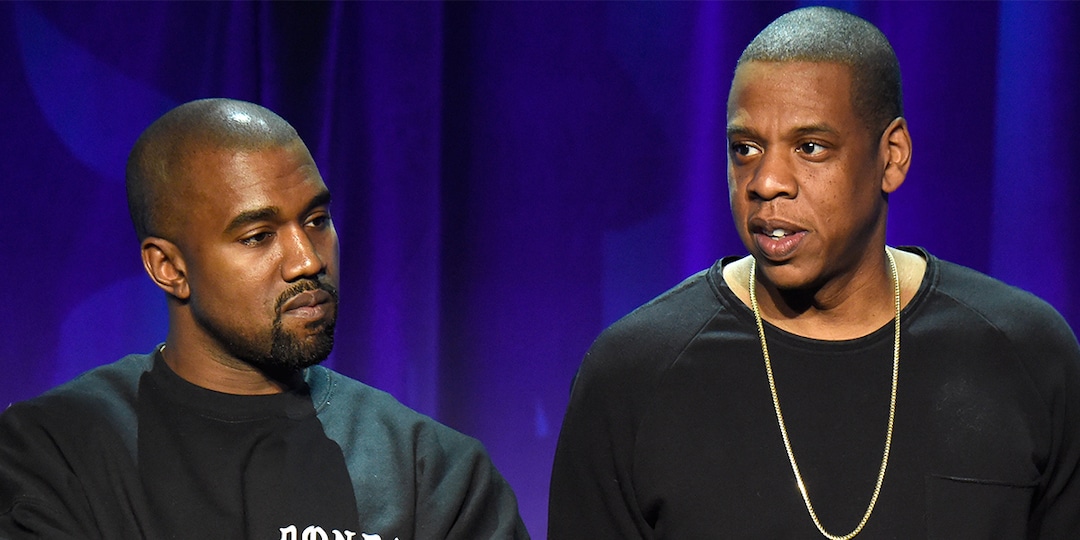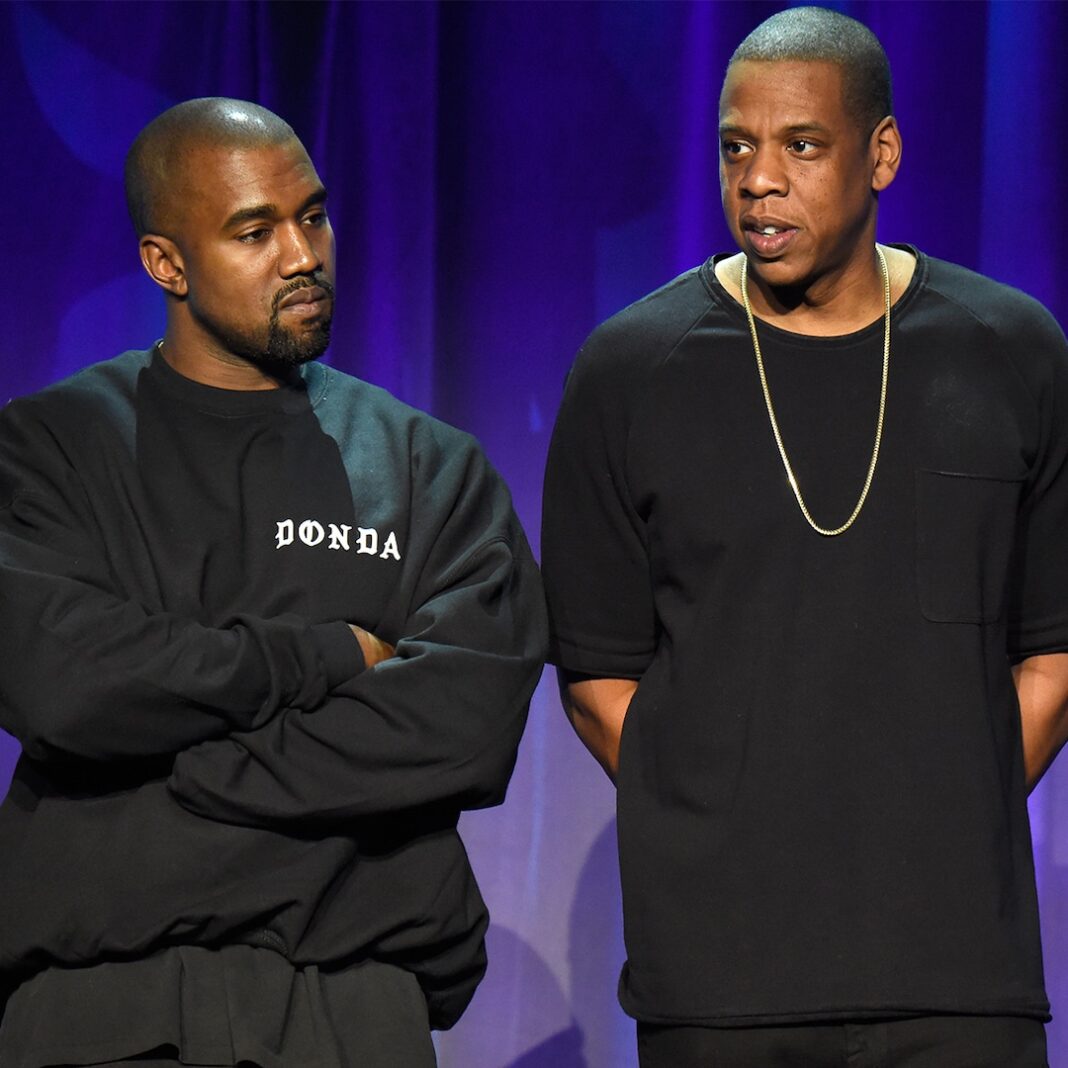Kanye West has never been one to shy away from controversy, and his recent comments about Jay-Z and Beyoncé’s children landed him squarely in the spotlight once again.

The Fallout from Controversial Tweets
Kanye’s Recent Outbursts: A Timeline
Kanye West’s recent social media activity has sparked widespread controversy and scrutiny. In a series of tweets posted to X, formerly Twitter, West targeted both Jay-Z and Beyoncé’s family, raising serious questions about his behavior and its potential consequences. Notably, West questioned the mental capacity of Beyoncé and Jay-Z’s 7-year-old twins, Rumi and Sir Carter. These comments, widely condemned as insensitive and inappropriate, prompted a swift backlash from the public and industry figures alike.
Beyond his remarks about the Carter family, West also reignited his long-standing feud with Taylor Swift. In a since-deleted tweet, he blamed Swift for preventing him from performing at the Super Bowl Halftime Show, a claim that has been met with skepticism and disbelief by many.
Impact on Public Perception
West’s controversial tweets have undoubtedly damaged his public image. Once celebrated as a musical genius and cultural icon, West now faces increased scrutiny and criticism for his often inflammatory and unpredictable behavior. Brands and collaborators may be hesitant to associate with him, potentially impacting his future career prospects.
The widespread condemnation of West’s statements highlights the significant social and cultural consequences of online behavior. His actions serve as a reminder of the power and responsibility that comes with wielding a platform like X, formerly Twitter, and the potential for harm that unchecked expression can inflict.
The Power of Social Media
X, formerly Twitter, has played a crucial role in amplifying West’s controversial messages and shaping public discourse around them. The platform’s rapid-fire nature and virality allow for quick dissemination of information, both positive and negative. In West’s case, his tweets have garnered widespread attention, sparking heated debates and polarizing opinions.
The incident underscores the potential consequences of social media for artists and public figures. While platforms like X, formerly Twitter, offer valuable opportunities for connection and creative expression, they also expose individuals to intense scrutiny and criticism. The impact of online actions can be far-reaching and long-lasting, necessitating careful consideration and responsible use.
A History of Feuds: Kanye, Jay-Z, and Taylor Swift
The Complex Relationship
Kanye West’s relationships with both Jay-Z and Taylor Swift have been marked by periods of collaboration, conflict, and public scrutiny. His recent comments about Jay-Z and Beyoncé’s children further complicate these already fraught dynamics.
West and Jay-Z, two of hip-hop’s most influential figures, have a history that spans over two decades. They have collaborated on numerous successful projects, but their relationship has also been characterized by public disagreements and personal tensions. A particularly contentious moment occurred in 2009 when West interrupted Swift’s acceptance speech at the MTV Video Music Awards, declaring that Beyoncé deserved the award for Best Female Video. This incident ignited a media frenzy and strained relations between the three artists.
West’s ongoing feud with Swift has garnered significant attention in recent years. Their public clashes, often fueled by social media posts and interviews, have captivated fans and critics alike. West’s recent accusation that Swift prevented him from performing at the Super Bowl Halftime Show further escalates this long-standing conflict.
The Role of Public Perception in Feuds
Media Coverage and Public Opinion
Celebrity feuds, often played out in the unforgiving glare of public scrutiny, are no longer confined to hushed backstage whispers. The 24/7 news cycle, amplified by social media, has transformed these conflicts into spectacles, contributing to their escalation and longevity. Every barb, every public statement, every perceived slight is dissected and amplified, often fueled by sensationalism and clickbait headlines. This constant exposure not only intensifies the conflict but also shapes public perception, creating a narrative that can be difficult to escape.
Take, for example, the ongoing feud between Kanye West and Taylor Swift. Initially sparked by a disagreement over a song lyric, the conflict has evolved into a multi-year saga, fueled by social media posts, interviews, and music releases. Each public statement, often laced with veiled insults and personal attacks, has been met with intense media scrutiny and fan reactions, perpetuating the cycle of animosity. The public, bombarded with information, often takes sides, further polarizing the situation.
The Damage to Careers and Personal Lives
The ramifications of these public feuds can be devastating, extending far beyond the realm of celebrity gossip. Careers can be irreparably damaged, personal relationships strained, and mental health compromised.
Consider the fallout from the highly publicized feud between Mariah Carey and Jennifer Lopez. The rivalry, fueled by media speculation and competitive industry dynamics, dominated headlines for years. Both artists, despite their immense talent and success, faced scrutiny and criticism, their careers seemingly overshadowed by the constant comparisons and attacks.
Moreover, the relentless public scrutiny can take a toll on mental well-being. The pressure to maintain a perfect image, coupled with the constant negativity and online abuse, can contribute to anxiety, depression, and feelings of isolation.
Mental Health in the Spotlight: Kanye’s Well-being and the Stigma
Addressing the Elephant in the Room
Kanye West’s recent comments about Jay-Z and Beyoncé’s children, followed by his apology and subsequent outbursts on social media, have reignited a crucial conversation: the importance of acknowledging mental health challenges, especially in high-pressure environments like the music industry.
The music industry is known for its demanding schedules, relentless touring, and constant pressure to produce hit after hit. The weight of expectation, coupled with the scrutiny of the public eye, can take a significant toll on artists’ mental well-being.
Kanye West’s struggles, which have been publicly documented over the years, highlight the need for greater understanding and support within the industry. His recent actions, while deeply concerning, should serve as a reminder that mental health issues can affect anyone, regardless of fame, fortune, or success.
The Need for Compassion and Support
It is imperative that fans, the media, and the music industry as a whole offer compassion and support to struggling artists.
The public’s response to Kanye West’s recent behavior has been mixed, ranging from condemnation to concern. While it is important to hold individuals accountable for their actions, it is equally crucial to recognize the complexities of mental illness and avoid judgmental pronouncements.
The music industry, often perceived as a glamorous and lucrative world, can be a harsh and unforgiving environment. Artists, particularly those in the public eye, often face intense pressure to maintain a certain image, meet unrealistic expectations, and navigate complex personal and professional relationships.
Breaking the Stigma
Open conversations about mental health are essential to breaking down the stigma surrounding these issues. By encouraging artists to seek help and providing accessible resources, we can create a more supportive and understanding environment.
The music industry has a unique platform to influence public perception and encourage conversations about mental health. Artists, with their massive fan bases and cultural influence, can use their voices to raise awareness, share their own experiences, and destigmatize seeking help.
Conclusion
In a surprising turn of events, Kanye West has publicly apologized to Jay-Z, marking a significant step towards mending their long-standing feud. The apology stems from West’s previous comments on Jay-Z and Beyoncé’s children, which sparked widespread criticism and further exacerbated the tension between the two music industry heavyweights. According to sources close to the situation, West’s apology was a genuine attempt to make amends and move forward, acknowledging that his words had caused unnecessary hurt and distraction from their shared passion for music.
The significance of this development cannot be overstated, as it highlights the complexities of celebrity relationships and the delicate balance between artistic expression and personal dynamics. The feud between West and Jay-Z has been a subject of intense media scrutiny, with many speculating about the underlying factors driving their animosity. While this apology may not entirely put an end to the drama, it does signal a willingness to reconcile and focus on what truly matters – the music and the art.
As the music industry continues to evolve and adapt to changing times, it will be fascinating to see how this development plays out in the long run. Will this apology mark the beginning of a new chapter in West and Jay-Z’s relationship, or will old wounds take time to heal? One thing is certain – the power of apologies and forgiveness can be a powerful tool in repairing relationships and fostering a more positive, collaborative environment for artists to thrive. As the saying goes, “a true friend apologizes sincerely, a better friend forgives completely.” Only time will tell if West and Jay-Z are ready to take this crucial step towards healing and growth.
